
Double Your Impact for the Holidays
Double Your Impact for the Holidays
Your urgently needed year-end gift can go twice as far to provide care and support and accelerate Alzheimer's research this holiday season — and all year long. Show your giving spirit today during this 2x Match Challenge.
Donate NowAfter losing her mother to Alzheimer's, actor rises to a new challenge
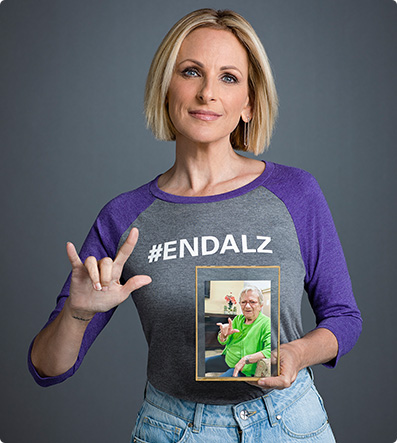 Marlee Matlin knows she owes a lot to her mother: Libby Matlin was one of her biggest cheerleaders as she embarked on an acting career, beginning at age 7 with the role of Dorothy in a local theater production of "The Wizard of Oz."
Marlee Matlin knows she owes a lot to her mother: Libby Matlin was one of her biggest cheerleaders as she embarked on an acting career, beginning at age 7 with the role of Dorothy in a local theater production of "The Wizard of Oz."
Before losing her mother to Alzheimer's disease, Matlin thanked her for helping to further her career. Her mother responded, "Yes, I sure did. I sure helped you!"
That was Libby Matlin: outspoken, opinionated, independent. Growing up, Matlin says their relationship was loving but contentious — partially because she was a "brat." When Matlin lost much of her hearing at 18 months old, Libby was devastated and fiercely protective. Along with Matlin's father, Donald, Libby became a passionate advocate, speaking at local schools about support for deaf children.
Looking back on an acclaimed career that has spanned five decades — including an Academy Award for her movie debut in the 1986 film "Children of a Lesser God," roles in hit television series like "The West Wing" and "Picket Fences" and, most recently, a starring role in the 2022 Academy Award-winning film "CODA" — Matlin is grateful for her mother's unwavering dedication to ensuring she had the same opportunities as a hearing child.
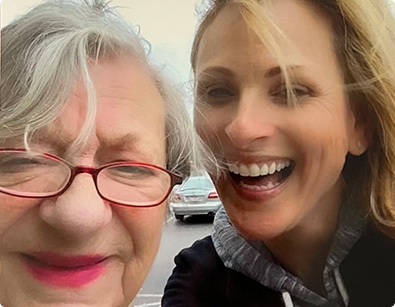 Libby's commitment to her daughter made it all the more painful when their roles were reversed: After Libby was diagnosed with Alzheimer's in her 80s, Matlin had to be the strong, unwavering advocate.
Libby's commitment to her daughter made it all the more painful when their roles were reversed: After Libby was diagnosed with Alzheimer's in her 80s, Matlin had to be the strong, unwavering advocate.
"About a year before her death, she had completely stopped talking. But I could see in her eyes that she knew who I was and she wanted to talk," says Matlin. "I told her I would do the talking for us. I learned to carry the relationship for both of us. I learned to love and express love for both of us."
Libby was not diagnosed with Alzheimer's immediately. Matlin and her two older brothers, Eric and Marc, initially noticed some unsettling changes. Libby, who always sent cards and called on important dates, started to forget anniversaries and birthdays. A visit to her parents' home in Florida confirmed Matlin's fears.
Early signs and symptoms of Alzheimer's
Memory loss that disrupts daily life is one symptom of Alzheimer's or another dementia. If you notice any of the early signs, don't ignore them.
"I went into [my parents'] pantry and there was loads and loads of food, and most of it had expired. I filled seven or eight big black grocery bags with old food and took it out to the trash," says Matlin.
"But when I came back in the morning, my mom had brought it all back into the house."Matlin's parents relocated to Chicago to be closer to her brothers, and soon after, a dangerous incident forced the family to seek a diagnosis. Matlin's mother took heart medicine every morning, and after an afternoon nap, awoke and thought it was a new day and took the medication again. A doctor confirmed what they already knew: Libby had Alzheimer's disease.
Long distances can complicate caregiving
In today's world, many families are geographically spread apart and not always able to provide hands-on care. But living out of town doesn't mean you can't be involved.
Donald's health started to decline, and Matlin's brothers provided care for both parents, managing their finances, medications and shopping. It was a huge responsibility that left Matlin, who lived in California, riddled with guilt. Her brothers, who were closer to the day-to-day challenges of caregiving, attended support groups. Matlin says she wished she had known more about their benefits, and emphasized the need for resources dedicated to deaf caregivers like herself.
"My brother said they learned a great deal from support groups. The fact that you can be overwhelmed with the sense of responsibility, to accept the changes, to accept the fact there is no cure," she says. "I wish I had learned those things earlier."
To feel connected to her mother, Matlin turned to one of her favorite forms of self-expression: tattoos. Matlin has 10 tattoos, ranging from the American Sign Language sign for "I love you" to a compass that honors her four children. She gifted her mother a tattoo of a sunflower on her left shoulder, and Matlin copied the art and the placement, adding "Libby" underneath as a tribute.
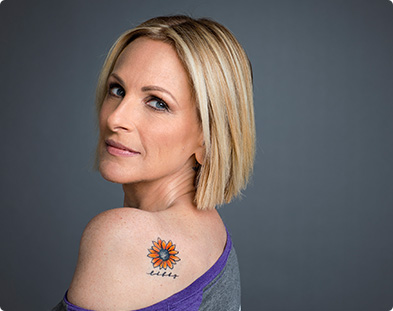 Libby died in 2021, eight years after her husband. Matlin misses both of her parents and their support — especially now. The actor is making her directorial debut in an episode of Fox's anthology crime drama "Accused," becoming one of the first female deaf directors in television. The storyline will feature a deaf woman who commits a crime of advocacy and protection.
Libby died in 2021, eight years after her husband. Matlin misses both of her parents and their support — especially now. The actor is making her directorial debut in an episode of Fox's anthology crime drama "Accused," becoming one of the first female deaf directors in television. The storyline will feature a deaf woman who commits a crime of advocacy and protection.
"When I was offered the directing job, I immediately thought of my parents," says Matlin. "I got sad that I couldn't call them. So I just looked up and said, 'Hey, I got the directing job. Please take care of me.' But if they were around, they would be elated. They would tell anyone who would listen. They would be proud of me, just like I am, too."
Alzheimer's and Dementia Resources for the Deaf Community
The Alzheimer's Association provides a variety of ways for people who are deaf to access critical resources.
Alzheimer's Association Helpline (800.272.3900)
Call 711 to connect with a TRS operator.
ALZConnected
An online social network to share information and support.
Education Programs
Closed captioning available.
Support Groups
A sign language interpreter can be provided with 48 to 72 hours advance notice.
Read More ALZ Magazine Articles
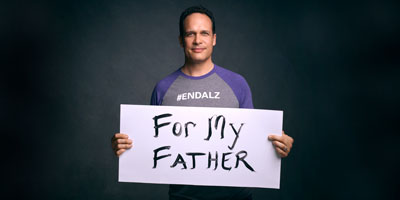
Blog posts
Diedrich Bader: In the Moment, Gratefully
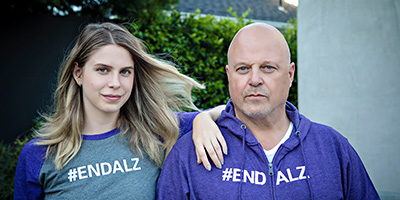
Blog posts
Michael Chiklis: Fighting Alzheimer’s is a Chiklis Family Effort
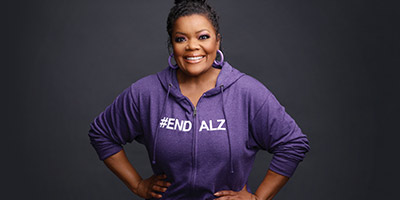
Blog posts
Yvette Nicole Brown: Her Challenging Off-Screen Role

The first survivor of Alzheimer's is out there, but we won't get there without you.
Donate Now
Learn how Alzheimer’s disease affects the brain.
Take the Brain Tour
